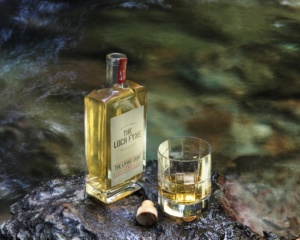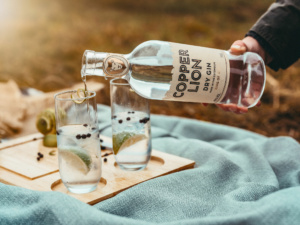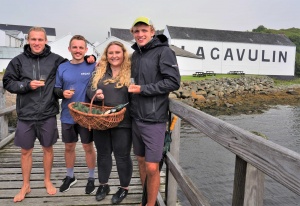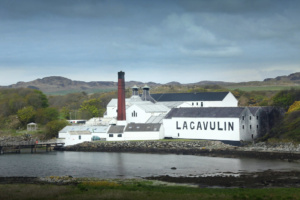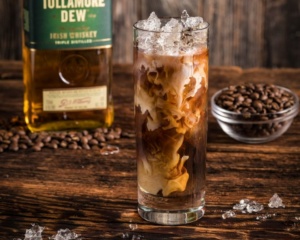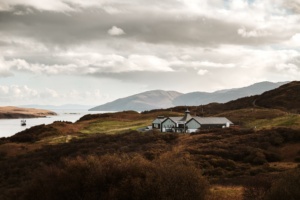Best Speyside Whiskies
We've picked ten of the best heavy hitters, however the area plays host to over 50 distilleries - so this is a drop in the ocean when it comes to Speyside whisky. See this list as a jumping off point for you to explore the output from this wonderous whisky region for yourself.
The Macallan
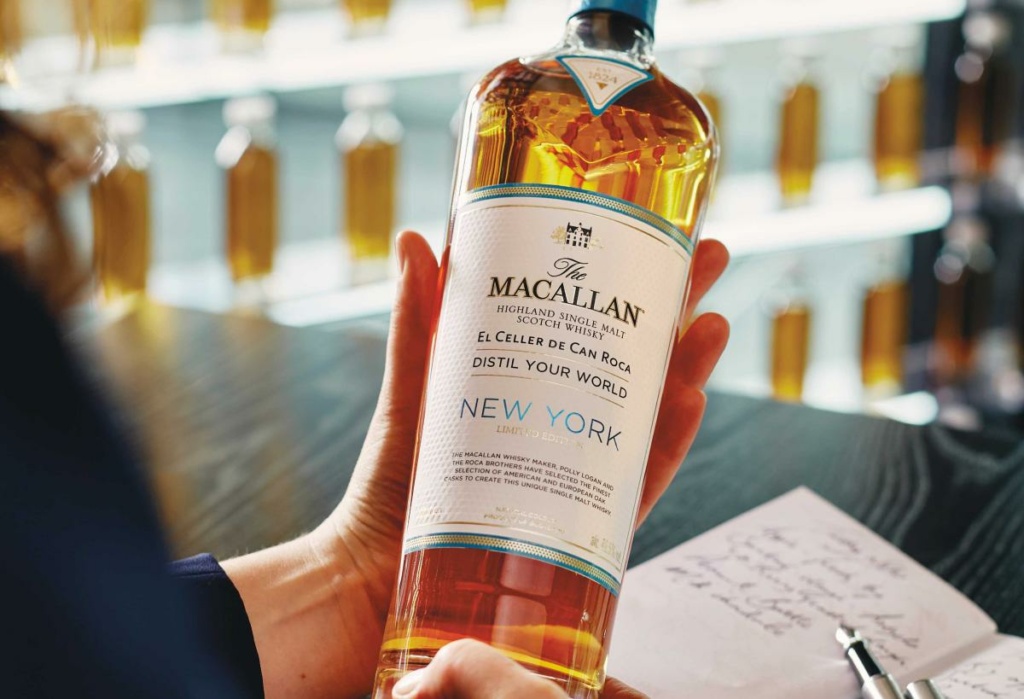
Although their label remarks 'Highland', The Macallan distillery sits firmly in the heart of Speyside. The name Macallan is synonymous with luxury, as the drink of choice of James Bond, and is hugely sought-after by collectors. Founded in 1824, the distillery displays mastery of both wood and spirit, with its emphasis on creating whisky with the finest quality ingredients and processes. A Macallan single malt showcases rich flavours of dried fruit, toffee and nutmeg.
Fun Fact: The name of the area ‘Maghellan’ is formed from the Gaelic word ‘magh,’ meaning fertile ground and ‘Ellan,’ from the Irish Monk St. Fillan who brought Christianity to Scotland in the 8th century.
Benriach
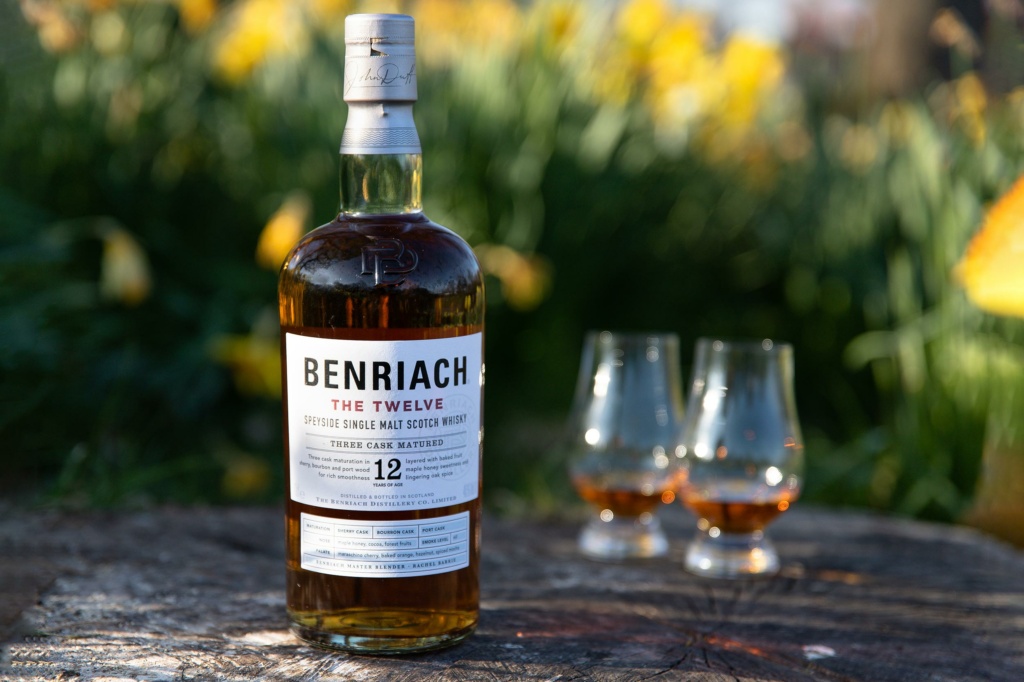
Benriach distillery was established by John Duff in 1898 on the site of Riach farm in the north of Speyside. Closed for most of the 20th century, the distillery has only been releasing bottlings since 1994. Benriach has remained true to its experimental heritage, by distilling three styles of whisky; classic unpeated, Highland peated and triple distilled. They continue to floor malt their barely, which alongside maturation in a wide range of casks from across the world, creates rich, traditional and multi-layered drams that explore the full range of single malt. Benriach is famous for flavours of citrus, orchard fruits and smoke.
Fun Fact: Benriach in Gaelic means 'Grey Hill'.
The Glenallachie
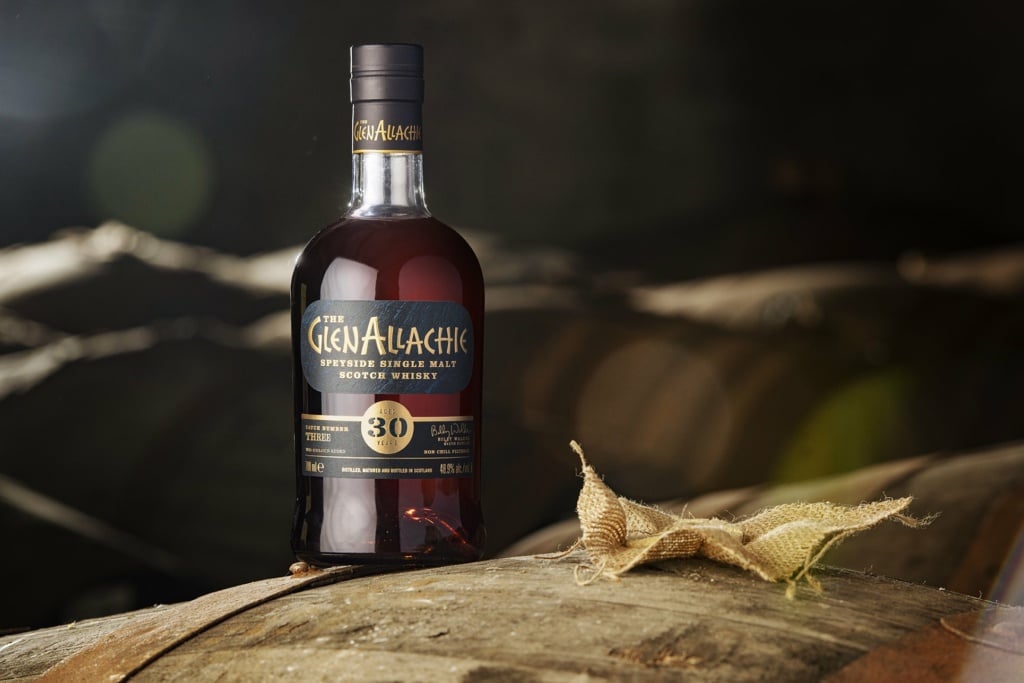
Founded in 1963, The GlenAllachie is an independently owned Speyside distillery. The distillery was built at the bottom of Ben Rinnes mountain and close to the Lour Burn - the pure water from which is used in the production of the whisky. Known for their bold, sweet and fruity expressions, The GlenAllachie's passion for whisky-making shines through in every release from the distillery. There are currently 50,000 casks slumbering in their 16 warehouses, as the distillery continues to go from strength to strength under the watch of Master Distiller Billy Walker.
Fun Fact: GlenAllachie means 'Valley of the Rocks' in Gaelic, which is fitting as Celtic runes and Pictish stones surround the geology of the distillery.
Benromach
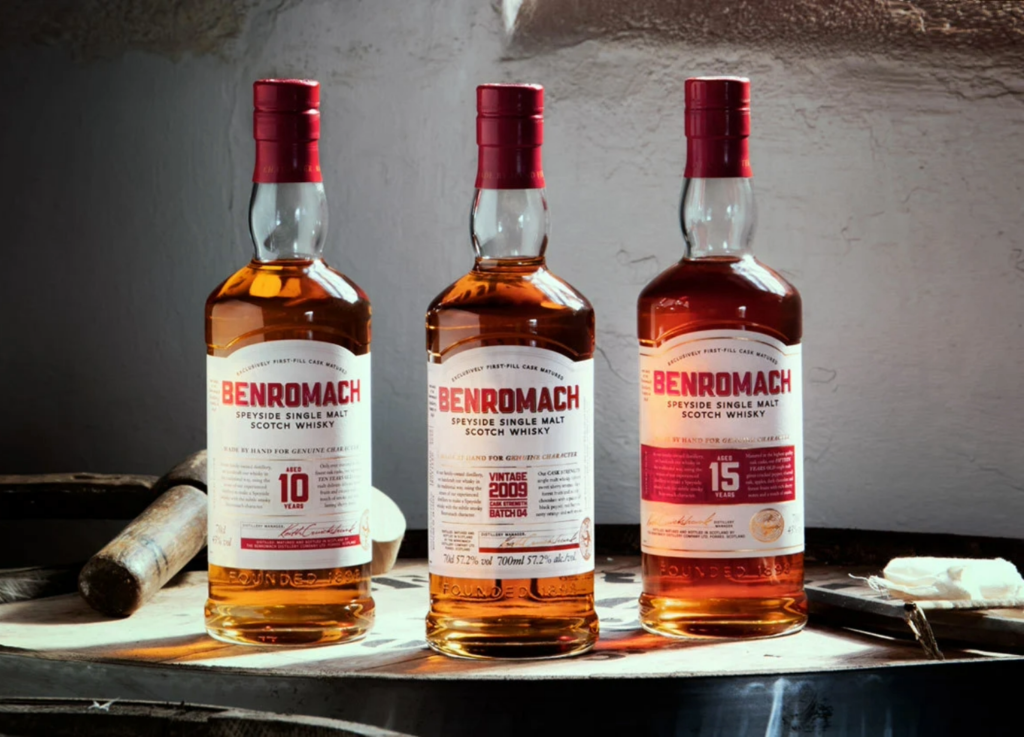
Another independently owned distillery, which are few and far between nowadays, Benromach is also the smallest distillery in the area. Established in 1898 on the outskirts of the ancient town of Forres, the site was mothballed in 1983, and was reopened in its current form by King Charles III in 1998. One of the few peated expressions in Speyside, you can expect notes of baking spices, tropical fruits and subtle smoke in their reimagined incarnation of the lost style of Speyside single malts - made by using traditional techniques.
Fun Fact: In Gaelic, Benromach means 'shaggy mountain'.
Mortlach
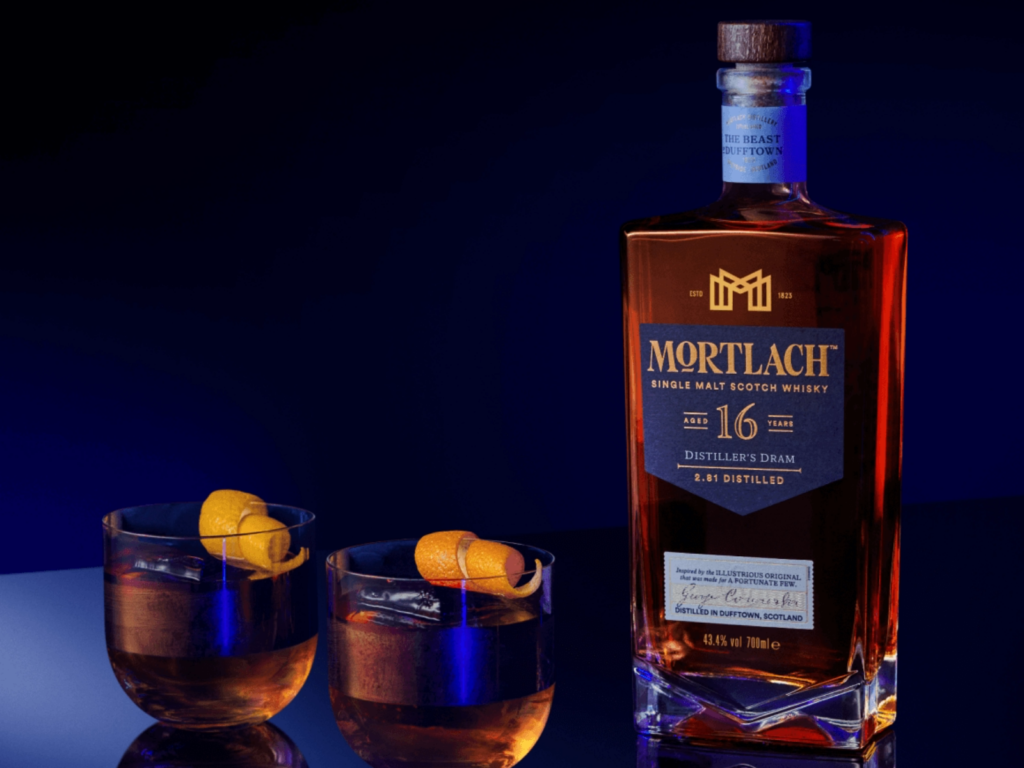
Affectionately known as ‘The Beast of Dufftown’, this Speyside distillery is a favourite component of many a blender, including Johnnie Walker. Prior to 2014, bottlings were rare and highly sought-after, but thankfully Mortlach now has their own range of luxury single malts which have boosted them to the other big 'M' in Speyside. The 16-year-old was tied as The World's Best Scotch Whisky at the Ultimate Spirits Challenge in 2023. You can expect robust flavours of dried fruits, nut, malted loaf and red meats.
Fun Fact: Mortlach was the name of the original village which sprang up around the abbey of the name, founded by Saint Moluag in the 7th century. After Dufftown was built, the distillery was the only remnant of the old name.
Tamdhu
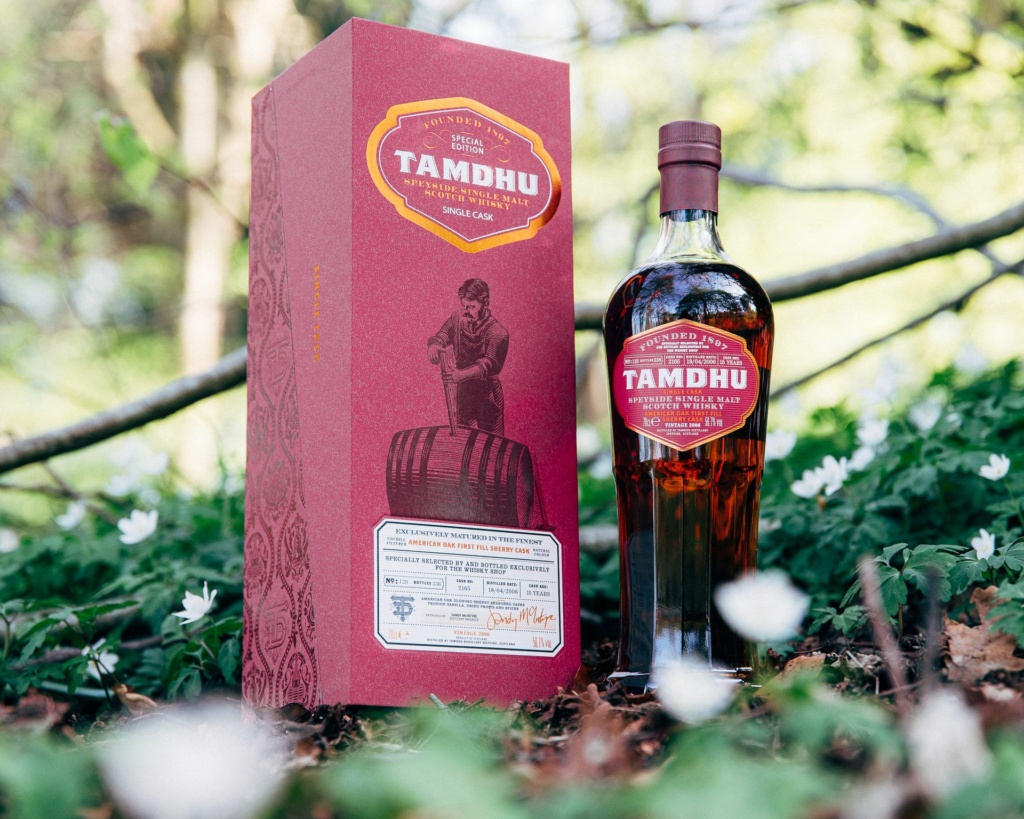
The only distillery in Scotland to fully mature all of its single malt whisky in 100% Oloroso sherry casks, this imbues a distinctive fruity flavour and depth of colour to Tamdhu whisky. Founded in 1897, the distillery has been at the heart of the Speyside tradition for over 125 years, always using water flowing into the nearby River Spey to make their expertly-crafted expressions. Their single malt boasts deep, rich flavours of orchard fruits, chocolate, fruit cake and caramel.
Fun Fact: Tamdhu is gaelic for 'little dark hill'.
The Balvenie
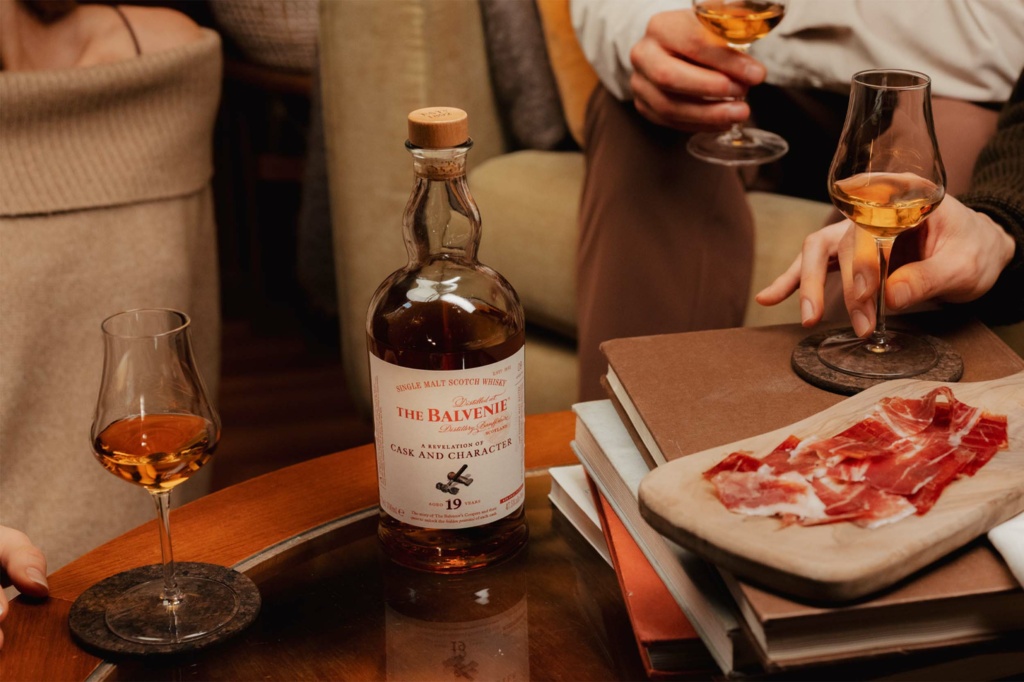
Founded by William Grant in 1889, The Balvenie distillery practices traditional whisky making processes which it has passed down through the centuries. This makes them the only distillery in Scotland that still grows its own barley, uses traditional floor malting and has a coppersmith and a team of coopers on-site. In addition, their Malt Master, David Stewart MBE, is the longest serving Malt Master in the industry. All of these unique qualities result in The Balvenie being a much-loved single malt around the world - even being a favourite of late celebrity chef Anthony Bourdain. It's known for its sweetness, as well as notes of honey, ginger, marshmallows and wisps of smoke.
Fun Fact: The name of the whisky came from nearby Balvenie Castle, purchased by founder William Grant in 1886, which itself in Gaelic means 'Village of Luck'.
Glenfarclas
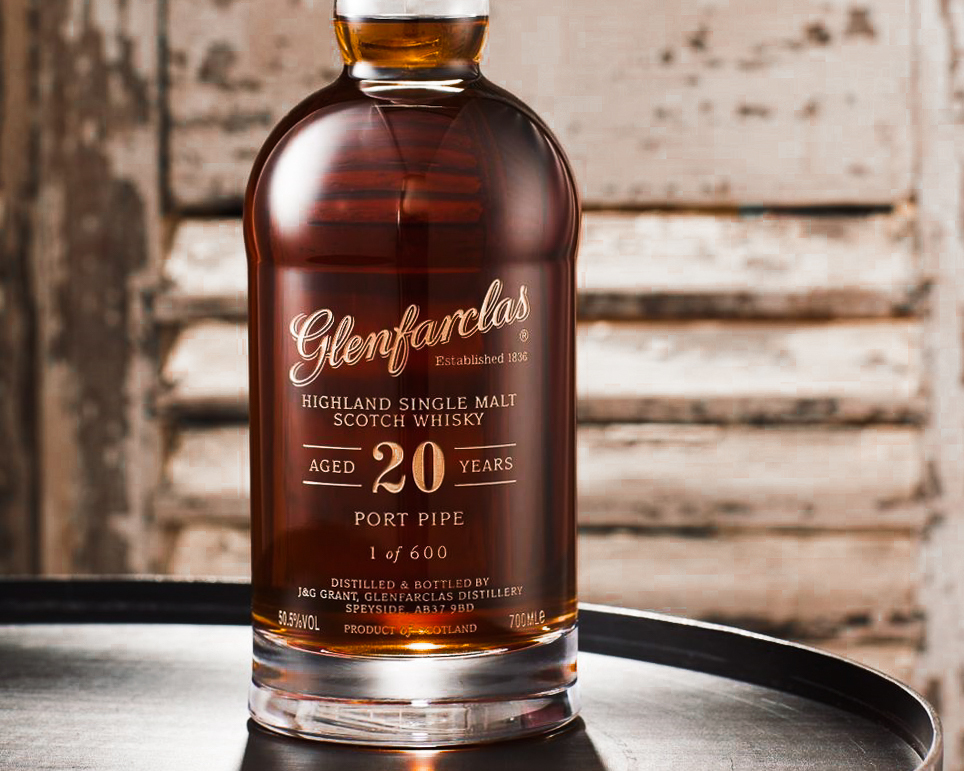
Originally licensed in 1836 by Robert Hay, Glenfarclas distillery was purchased by John Grant in 1865 for a fee of £511 and has been owned and managed by 6 different generations of the Grant family since. Glenfarclas is a family-owned distillery at heart, with a devotion to traditional distillation methods and to sherry cask maturation. They distil the liquid twice in their traditional direct fired stills, and maintain a tight-knit team who take pride in their artisan methods handed down over centuries. They are known for flavours of christmas cake, dark fruits, toffee and subtle smoke.
Fun Fact: Glenfarclas means 'Valley of the Green Grassland' in Gaelic.
The Singleton of Dufftown
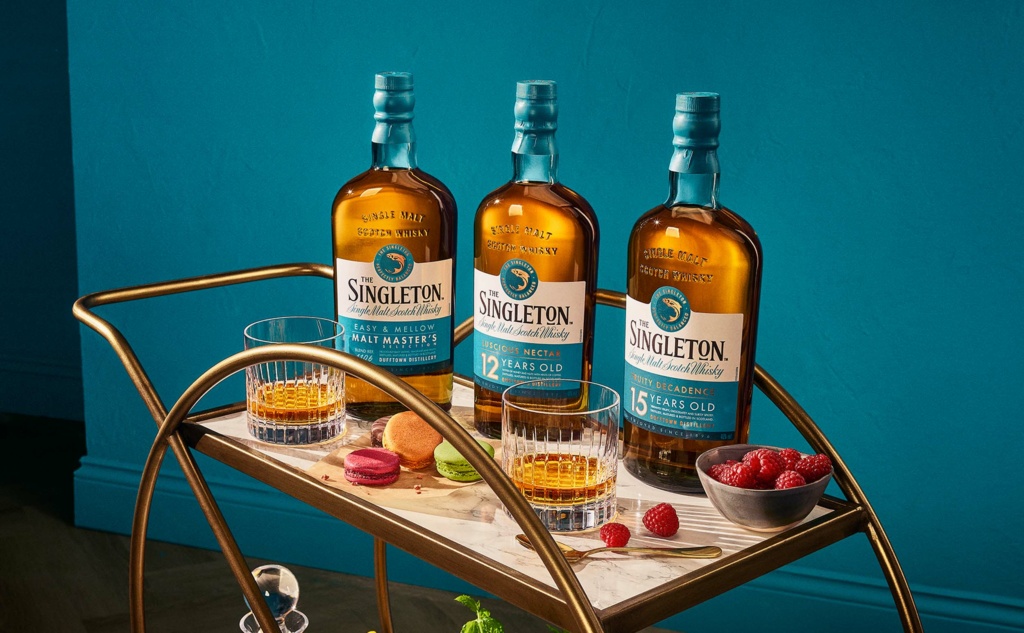
The Singleton encompasses three distilleries: The Singleton of Dufftown, The Singleton of Glen Ord, and The Singleton of Glendullan. The Dufftown is the eldest, having been founded in 1896 in the heart of Speyside. It continues to celebrate the harmony of flavours that come from flavourful barley and the balance of different cask types. These are notes of cereals, berries and toffee.
Fun Fact: There is an old saying in whisky of “Rome was built on seven hills and Dufftown stands on seven stills.” The Singleton is one of these giants of Dufftown, which was named after it's founder, James Duff, the 4th Earl of Fife.
Glenfiddich
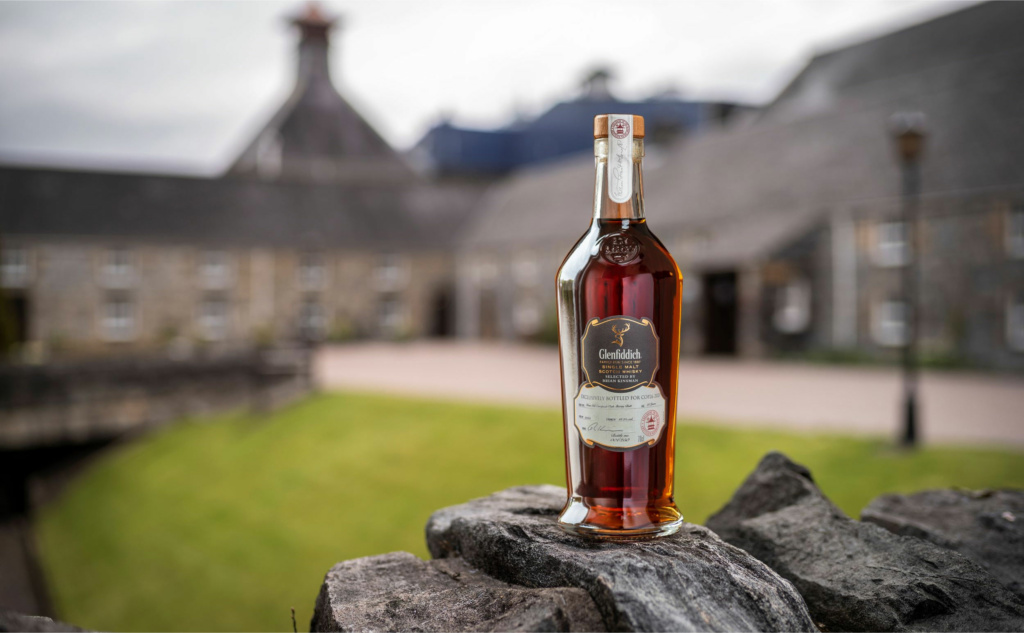
The biggest single malt whisky brand in the world, Glenfiddich distillery is nestled within Dufftown and was also founded by William Grant, who had a vision of making the ‘best dram in the valley’. Today Glenfiddich is sold in over 180 countries, surpassing even the wildest of his expectations. Each of the single malt whiskies in the Glenfiddich range are distinctive with character in abundance, and tastes to match the style. Their iconic triangular bottle was designed in 1957, a nod to the importance of the trio of water, air, and malted barley. Glenfiddich is a remarkably light dram, with signature flavours of apple, pear, vanilla and mixed spice.
Fun Fact: The name Glenfiddich translates in Gaelic to ‘Valley of the Deer’, which is depicted in their logo.
Explore our entire range of Speyside whisky, here.
FAQ
- What distinguishes Speyside whiskies from those produced in other regions of Scotland, such as the Highlands or Islay? One key difference is the emphasis on sweetness, richness, and complexity in Speyside whiskies, often attributed to the quality of ingredients and traditional production methods employed by distilleries in the region. Speyside whiskies are also known for their fruity and floral aromas, which can vary depending on the specific distillery and maturation process. Additionally, Speyside whiskies tend to exhibit a smooth and approachable character, making them popular among both novice and seasoned whisky drinkers.
- Are there any significant historical or cultural influences that have shaped the development of Speyside whisky production, and how do these influences manifest in the whiskies produced today? Speyside whisky production is deeply influenced by its historical and cultural heritage. The region's abundant barley and access to clean water sources, such as the River Spey, have long supported whisky-making. Family-owned distilleries, passed down through generations, uphold traditions of quality and craftsmanship. Speyside's reputation for excellence attracts global enthusiasts, driving ongoing innovation while preserving its rich whisky-making legacy.
- With over 50 distilleries in the Speyside region, how do whisky enthusiasts navigate the vast selection of expressions to find the best Speyside whiskies suited to their preferences? Navigating the vast selection of Speyside whiskies can be daunting for whisky enthusiasts, given the region's abundance of distilleries and expressions. To explore the diverse range of offerings beyond the ten highlighted here, enthusiasts can turn to various resources such as whisky festivals, tasting events, and communities dedicated to whisky appreciation, such as The W Club. Visiting distilleries in person and participating in guided tastings or tours can also offer first-hand experiences and deepen one's understanding of Speyside whisky production. You can read our article on Underrated Speyside Distilleries, here.
 4.7/5 with 10,000+ reviews
4.7/5 with 10,000+ reviews
